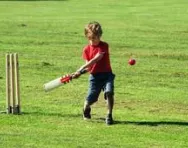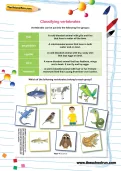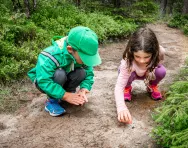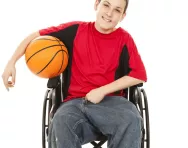Important update from TheSchoolRun
For the past 13 years, TheSchoolRun has been run by a small team of mums working from home, dedicated to providing quality educational resources to primary school parents. Unfortunately, rising supplier costs and falling revenue have made it impossible for us to continue operating, and we’ve had to make the difficult decision to close. The good news: We’ve arranged for another educational provider to take over many of our resources. These will be hosted on a new portal, where the content will be updated and expanded to support your child’s learning.
What this means for subscribers:
- Your subscription is still active, and for now, you can keep using the website as normal — just log in with your usual details to access all our articles and resources*.
- In a few months, all resources will move to the new portal. You’ll continue to have access there until your subscription ends. We’ll send you full details nearer the time.
- As a thank you for your support, we’ll also be sending you 16 primary school eBooks (worth £108.84) to download and keep.
A few changes to be aware of:
- The Learning Journey weekly email has ended, but your child’s plan will still be updated on your dashboard each Monday. Just log in to see the recommended worksheets.
- The 11+ weekly emails have now ended. We sent you all the remaining emails in the series at the end of March — please check your inbox (and spam folder) if you haven’t seen them. You can also follow the full programme here: 11+ Learning Journey.
If you have any questions, please contact us at [email protected]. Thank you for being part of our journey it’s been a privilege to support your family’s learning.
*If you need to reset your password, it will still work as usual. Please check your spam folder if the reset email doesn’t appear in your inbox.
How to keep your family fit and active

The word ‘exercise’ is enough to make most people groan, children and adults alike. We know we could be doing more to be physically active and encourage our children to exercise, but with hectic lifestyles and the ever-growing temptation of screen time, fitness can easily be forgotten.
Benefits of keeping fit
James Metcalf, a member of the British Gymnastics Association, has taught children and adults for seven years from basic ‘tumble tots’ to regional level. He says, “I think children should exercise as it has too many benefits not to! Physically it burns fat, develops balance, strength, flexibility, stamina. Mentally it can reduce the likelihood of depression, boost confidence and can lead to wider skills in socialising, analysing problems, leadership and goal setting. For a parent trying to equip their child with the best tools to tackle life, physical exercise is a great asset.”


Download fantastic science resources today!
- Experiments And Science Fun pack
- Science Learning Programme for each school year
- All the instructions, questions and information you need
Based on recent UK Government recommendations, children should do 60 minutes of moderate-to-vigorous intensity physical activity per day across the week.This can include physical education, active travel, after-school activities, play and sports. Children should break up sedentary periods with at least 'light physical activity.'
Dietary guidelines are, of course, important to health and fitness too, but improving physical activity is a great place to start and can then be combined with eating healthier foods.
Activities for family-fitness days
Swimming
Don't panic – this doesn’t have to be endless lengths of front crawl!
- Find a pool with water chutes, flumes, waves and other fun features and the children will have hours of fun. Most adults like an excuse to slide down a water chute, too.
- Bring inflatable balls to throw around, a set of rings to collect from the bottom of the pool, and anything else you can use to create fun games.
- Get imaginative, and competitive. Play variations of the game called Tag, or see who can hold on to the edge of the pool and kick their legs for the longest (very tiring, but great for the muscles!).
Walking
- Combine a walk with a nature trail or take a spotter’s book which the children can use to tick off things they find.
- Don’t be put off by bad weather, children love splashing in puddles as long as they have the right clothes to keep them warm and dry.
Dance
Dance is not just for girls! In recent years it has become very popular with boys, too – anyone can do it (almost) anywhere!
- There's a wide variety of styles to choose from so have a look around and see which one sparks an interest with your child.
- Some children can be shy about dancing in front of others but there are some fantastic YouTube tutorials on an array of dance styles that you can try out in the comfort of your own home.
- Video games like Just Dance are another great way to engage children in something fun and active without it feeling like a chore.
Active days out
There are lots of exciting days out you can have together.
- Try a climbing wall, ice skating, indoor skydiving or skate boarding.
- There are a few indoor snow slopes in the UK where everyone can have a go at skiing or snowboarding.
- Many horse-riding schools offer family packs which are suitable for all abilities.
- If that's a little above your price range, why not get on your bikes and go cycling for the day?
Team sports
- If your child enjoys kicking, throwing or hitting a ball about then look for local sports clubs for football, cricket and hockey. Training sessions are at least once a week and it’s a chance to make new friends and have fun too.
- Create a family team and split up to play games like football together. This can be done even if there's only two of you and you can take it in turns to be goalkeeper.
Free resources to get children moving
The free Active Recovery Hub provides schools, local authorities and families with easy access to resources to get children moving before, during and after the school day.
A total of 38 sports organisations have provided content and expertise to create hundreds of resources available to help all children achieve the Chief Medical Officer’s recommendation of an average of 60 active minutes a day.








